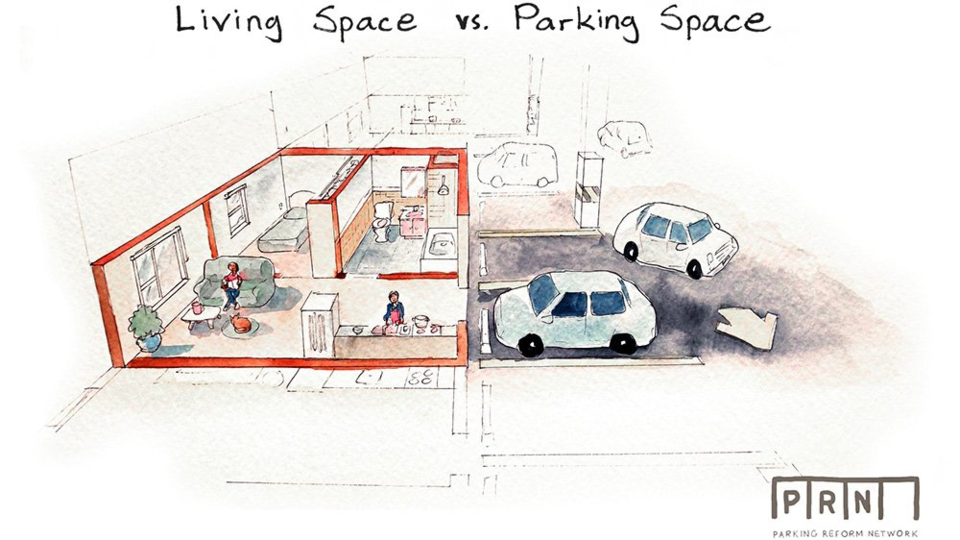A recent report to Sarnia’s city council by Stacey Forfar, General Manager of Community Services, reveals that mandatory minimum parking requirements for site-specific applications have been reduced at least 11 times in recent years, mainly for apartments, with rates ranging from 0.8 to 1.25 spaces per unit.
According to the report, current parking mandates are outdated and hinder development by raising land acquisition costs and reducing affordability.
The current zoning bylaw mandates a minimum of 1.5 parking spaces per unit for apartments and 1.0 for other types of dwellings. The draft of the new bylaw suggests a modest reduction, proposing 1.2 spaces per unit for apartments.
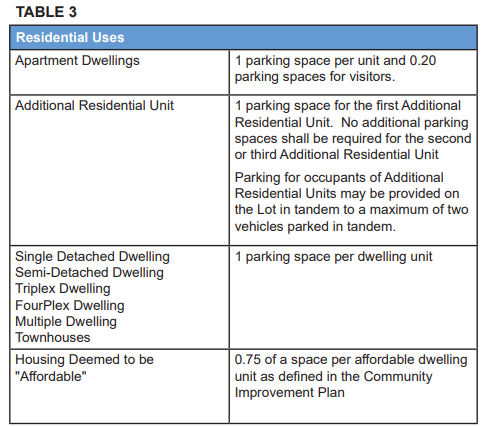
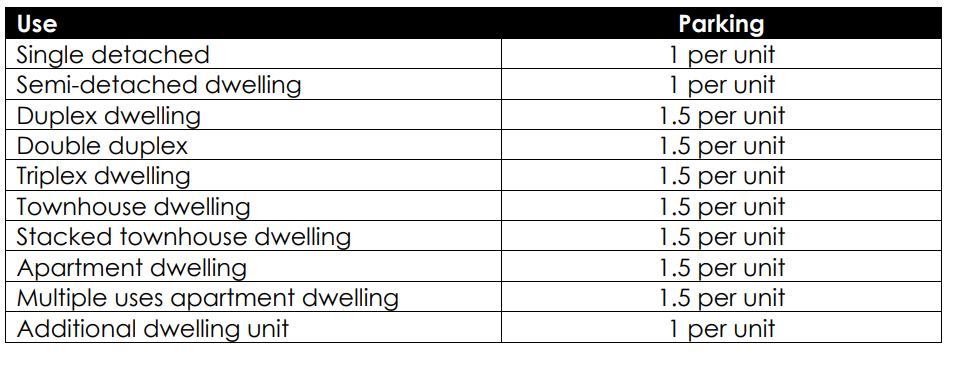
At a recent council meeting, resident Robert Dickieson proposed replacing parking minimums with a parking maximum mandate. He cited cities like Edmonton, which eliminated parking minimums in 2020, and referenced research showing improved affordability, particularly in transit-oriented areas where Sarnia plans for future growth.
In response to calls to eliminate parking minimums locally, Forfar stated in a commentary to the draft bylaws that Sarnia’s transit system and alternative mobility options aren't yet developed enough to support removing parking mandates.
This creates a challenging dynamic: advocates argue that parking minimums hinder housing and transit development, while city staff contend that insufficient urban development and transit infrastructure make it difficult to eliminate the mandates. The issue reflects a cycle where current needs clash with long-term goals.
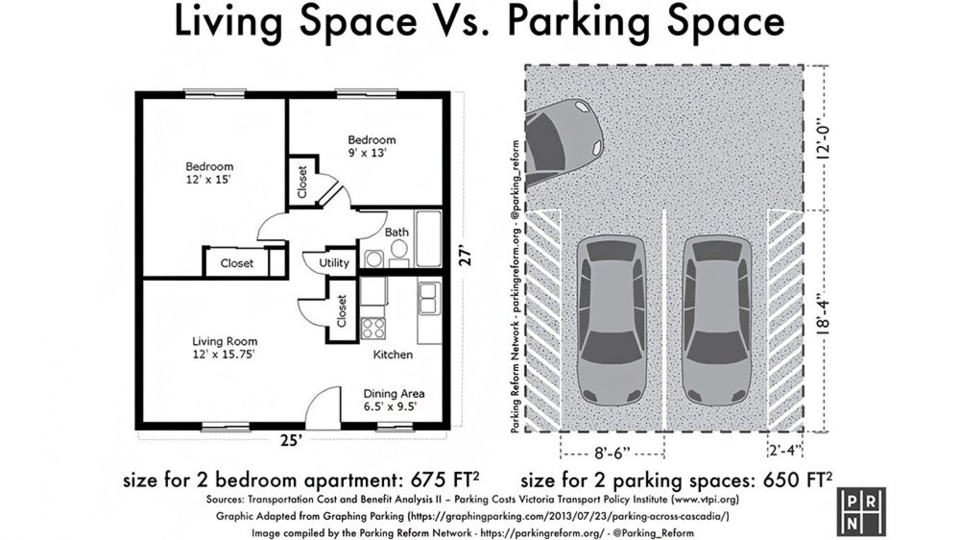
Examining the research behind parking mandates
Donald Shoup, a prominent urban planning scholar, argues that parking requirements are often grounded in pseudoscience, leading to an excess of parking that fosters car dependency, urban sprawl, and higher development costs. Shoup notes that these mandates are based on outdated assumptions and arbitrary standards, rather than actual data on parking usage.
This is consistent with findings from the City of Ottawa’s Minimum Parking Review, which questions the theoretical foundation of parking requirements. The city references the American Institute of Certified Planners, which warns that "the underlying assumptions used in drafting parking requirements are unknown; copying other cities' parking standards may simply repeat their mistakes, and many communities have established parking requirements that compel developments to create spaces far beyond what is actually needed."
The review also highlighted a study in which nearly half (45%) of surveyed U.S. planners identified "surveying nearby cities" as the primary basis for determining minimum parking requirements for workplaces.
This approach was evident in Sarnia’s December 16th city council meeting where the planning consultant for the draft bylaws, Ron Palmer, admitted that no parking study was done to support the current bylaw and that the new mandatory minimum parking requirements were based on his experience in other municipalities of similar size.
In his 2005 book The High Cost of Free Parking, Shoup advised cities to eliminate off-street parking requirements, adopt demand-based curb parking pricing, and use meter revenue to fund public service improvements.
This explainer video from Vox, titled The High Cost of Free Parking, explores the history of parking mandates, their far-reaching impacts, and Donald Shoup’s recommendations for reform.
Spokane’s Parking Pilot Program
Spokane faced a similar dilemma, where calls to eliminate parking mandates were met with concerns about future parking shortages. Advocates criticized the arbitrary nature of parking ratios, like requiring one spot per 330 square feet for arcades and bowling alleys. In Sarnia’s new draft zoning bylaws, this looks like 4.25 spaces per 100m² for retail and service commercial uses or five spots per hole on a golf course.
To address these concerns, Spokane voted in 2023 to suspend parking mandates for one year within half a mile of any transit stop. This effectively removed minimum parking mandates city-wide.
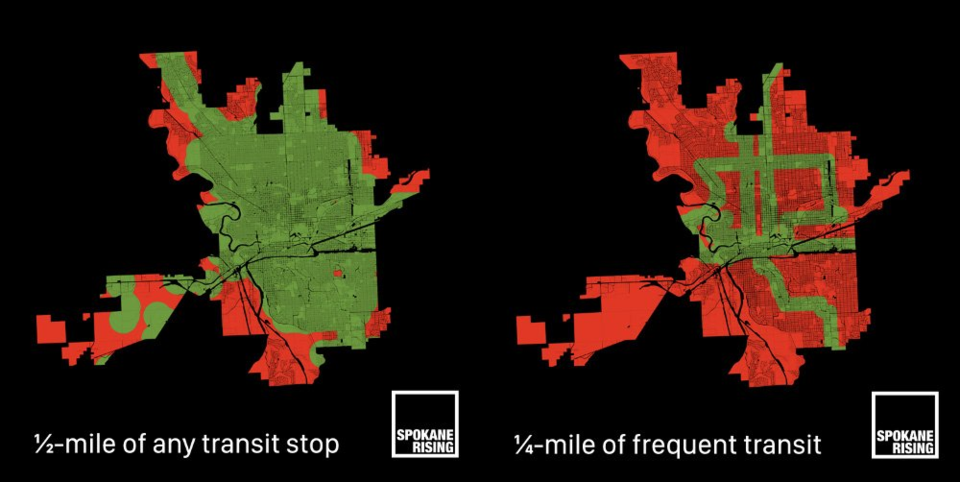
After a year, there were no major changes to neighborhoods or developments, debunking the misconception that removing mandates meant eliminating parking entirely. Council member Zach Zappone noted that new projects took advantage of the relaxed codes, building less parking or focusing more on infill. In 2024, Spokane voted to extend the reform, becoming the largest city in Washington to eliminate parking mandates.
Spokane's experience could provide valuable lessons for Sarnia and other cities exploring similar reforms. Spokane council member, Zappone, stated that this method of "piloting changes and addressing concerns demonstrates that [council members] are listening and open to making adjustments if needed."
